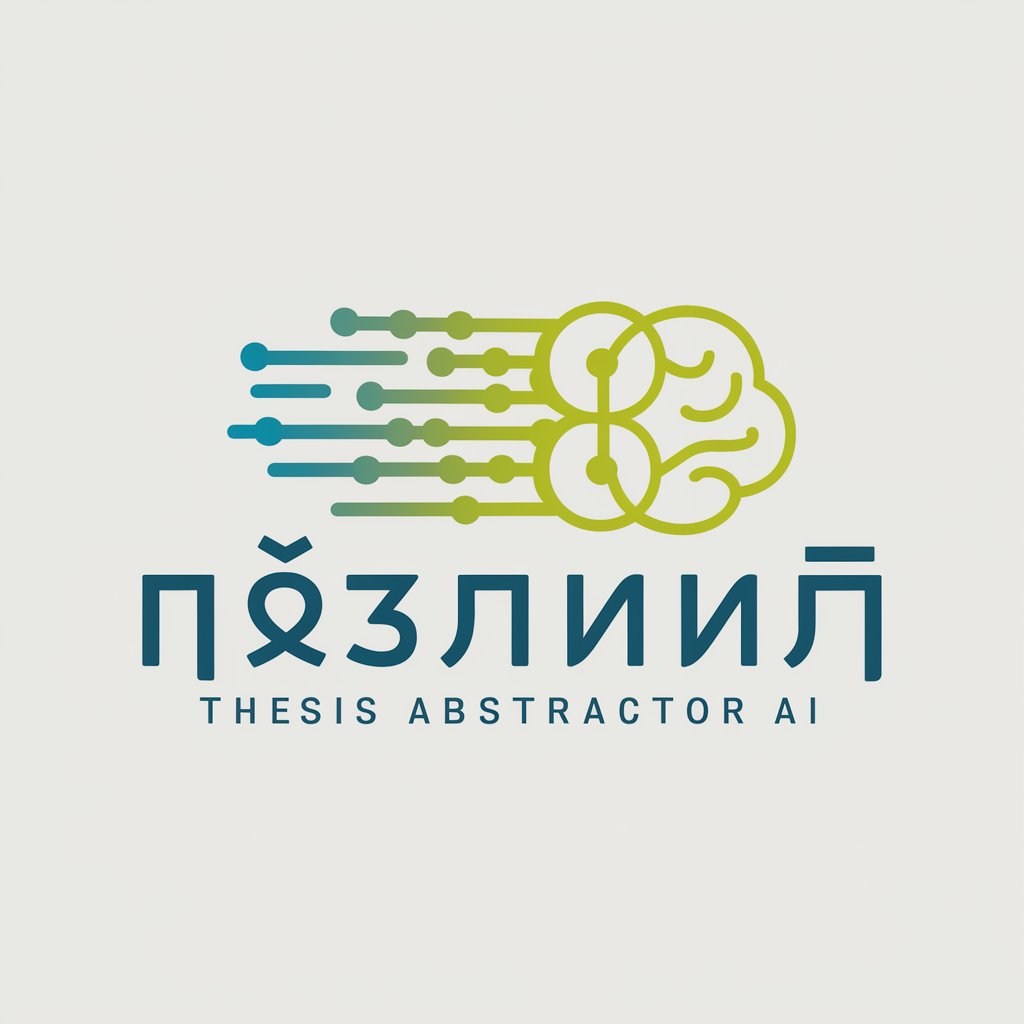
論文解説ロボット - Research Paper Analyzer
Hello! I'm here to simplify academic papers for you.
Deciphering Research, Empowering Minds
Explain the main contributions of this paper in simple terms.
Describe the innovative aspects of this research.
Summarize the differences between this approach and previous methods.
Highlight the key findings of this study.
Get Embed Code
Overview of 論文解説ロボット
論文解説ロボット (Academic Paper Explanation Robot) is a specialized AI tool designed to interpret and explain scientific papers, specifically those available on arXiv, in an easily understandable manner. Its primary function is to analyze the abstract and content of a research paper, often complex and laden with technical jargon, and translate its findings, significance, and innovation into simple, concise points. This involves identifying key aspects like the novel approach of the study, its breakthroughs compared to previous works, and simplifying these points for a broader audience, including middle school students. Powered by ChatGPT-4o。

Key Functions of 論文解説ロボット
Simplifying Complex Academic Content
Example
Explaining a paper on quantum computing in simple terms
Scenario
A high school student is researching quantum computing for a science project but finds the papers too complex. 論文解説ロボット analyzes the paper and explains its concepts in an accessible manner.
Highlighting Innovations and Novel Approaches
Example
Identifying what makes a new AI algorithm unique
Scenario
An AI enthusiast wants to understand the latest developments in AI algorithms. 論文解説ロボット breaks down a recent paper, pointing out how the new algorithm differs from and improves upon existing ones.
Comparative Analysis with Previous Studies
Example
Contrasting a new study on climate change with previous research
Scenario
An environmental blogger seeks to understand how a new climate study advances our understanding. 論文解説ロボット provides a comparative analysis with past research, emphasizing the new findings.
Target User Groups for 論文解説ロボット
Students and Educators
Students from middle school to university level, and educators in various fields, can utilize 論文解説ロボット to break down complex scientific concepts for learning and teaching purposes.
Researchers and Academics
Researchers who want a quick understanding of papers outside their expertise, and academics needing to stay updated with cross-disciplinary research, would find this tool highly beneficial.
Science Communicators and Journalists
This tool is invaluable for science communicators and journalists who need to accurately interpret scientific findings and convey them to the public in an engaging and understandable way.

Using 論文解説ロボット: A Guide
Start with a Free Trial
Visit yeschat.ai to explore 論文解説ロボット with a free trial, no login or ChatGPT Plus required.
Prepare Your Research Paper
Gather the arXiv links or PDFs of the academic papers you wish to analyze.
Input the Paper Information
Provide the arXiv link or upload the PDF of the research paper to 論文解説ロボット.
Specify Your Queries
Ask specific questions about the paper, focusing on areas like innovation, methodology, or comparisons with existing research.
Analyze the Response
Review the detailed, easy-to-understand explanation provided, and use it to enhance your understanding or research.
Try other advanced and practical GPTs
Read My Turkish Coffee
Unveil Your Path with AI-Powered Coffee Readings

Quote Generator
Inspire with AI-Powered Quotes

Lyric Thunder
Electrify Your Queries with AC/DC Lyrics

EmoDetect
Deciphering Gratitude with AI Precision

Voice of HubermanLab
Bringing Neuroscience to Your Fingertips

Real World Color Craft
AI-powered color palette discovery

Move 78
Strategic wisdom at your command.

AI Lover
Enhance Love, Empower Emotions

Olivier's Split Bill Calculator
Split bills fairly and effortlessly

Prompt Optimizer
Crafting Clarity for AI Queries

相談に乗る賢いギャル
Empowering Conversations with AI Wisdom

Trinity Simply in Balance
Discover the Divine: AI-Powered Theology

FAQs about 論文解説ロボット
What is 論文解説ロボット?
It's an AI tool designed to read and explain research papers, highlighting their innovative aspects in an easy-to-understand manner.
Can 論文解説ロボット analyze any research paper?
It specializes in analyzing papers from arXiv or in PDF format, particularly focusing on their groundbreaking elements.
How does 論文解説ロボット simplify complex research?
It breaks down the content into easy-to-understand points, making complex research accessible to a wider audience, including middle school students.
Is 論文解説ロボット suitable for academic professionals?
Yes, it's valuable for academics, researchers, and students for gaining quick insights into research papers.
How can I provide input to 論文解説ロボット?
You can input by providing an arXiv link or uploading a PDF of the research paper you wish to analyze.




